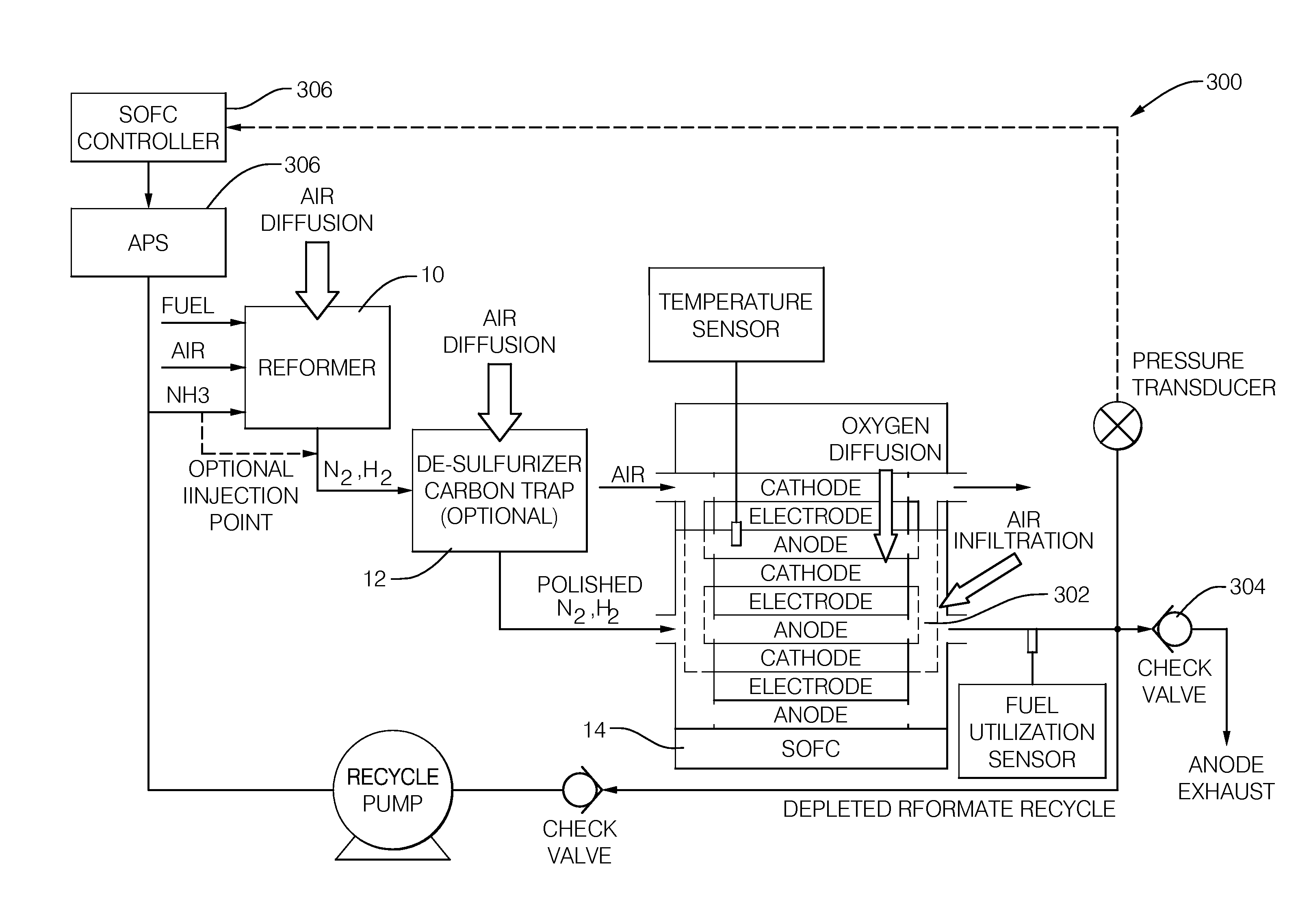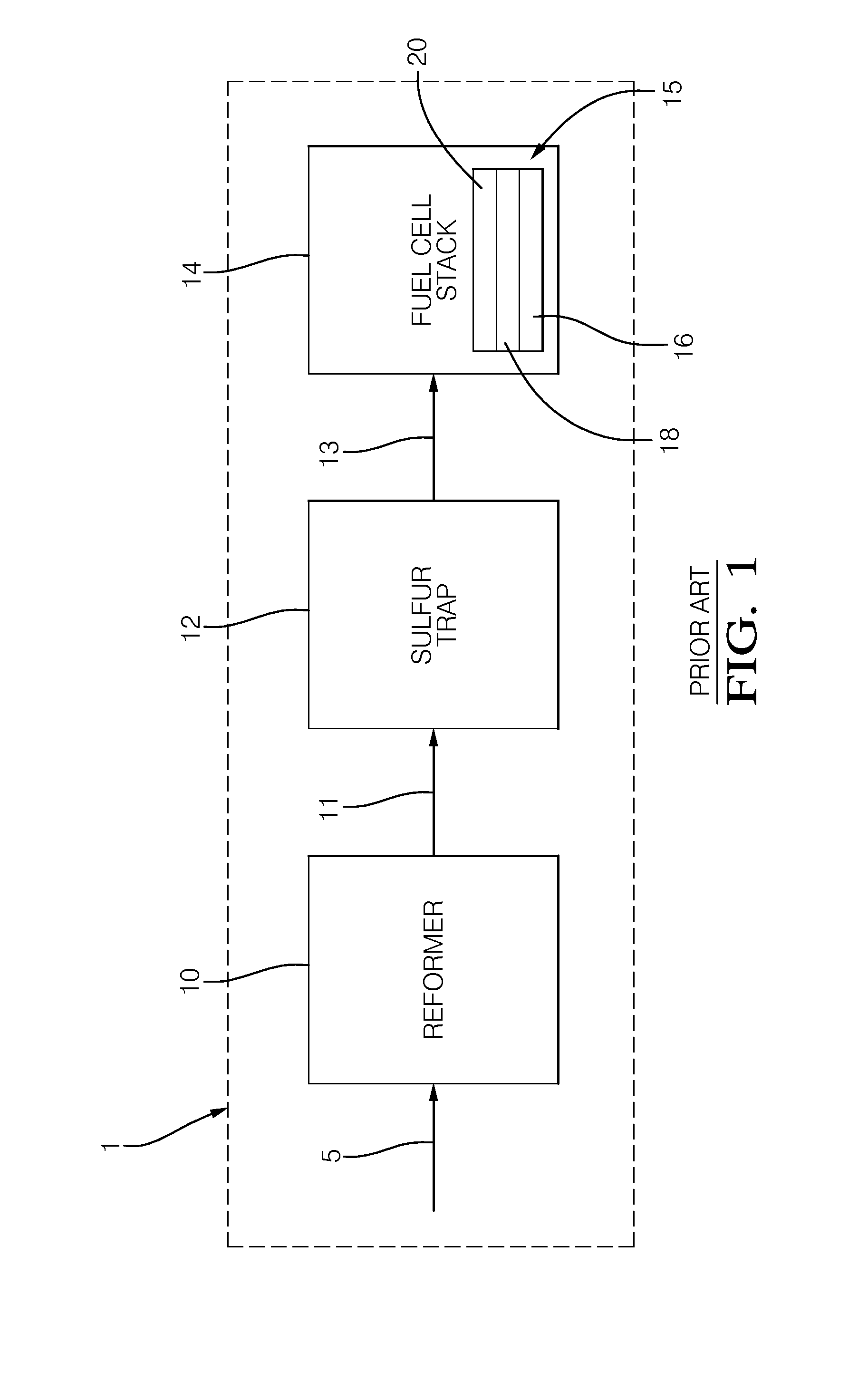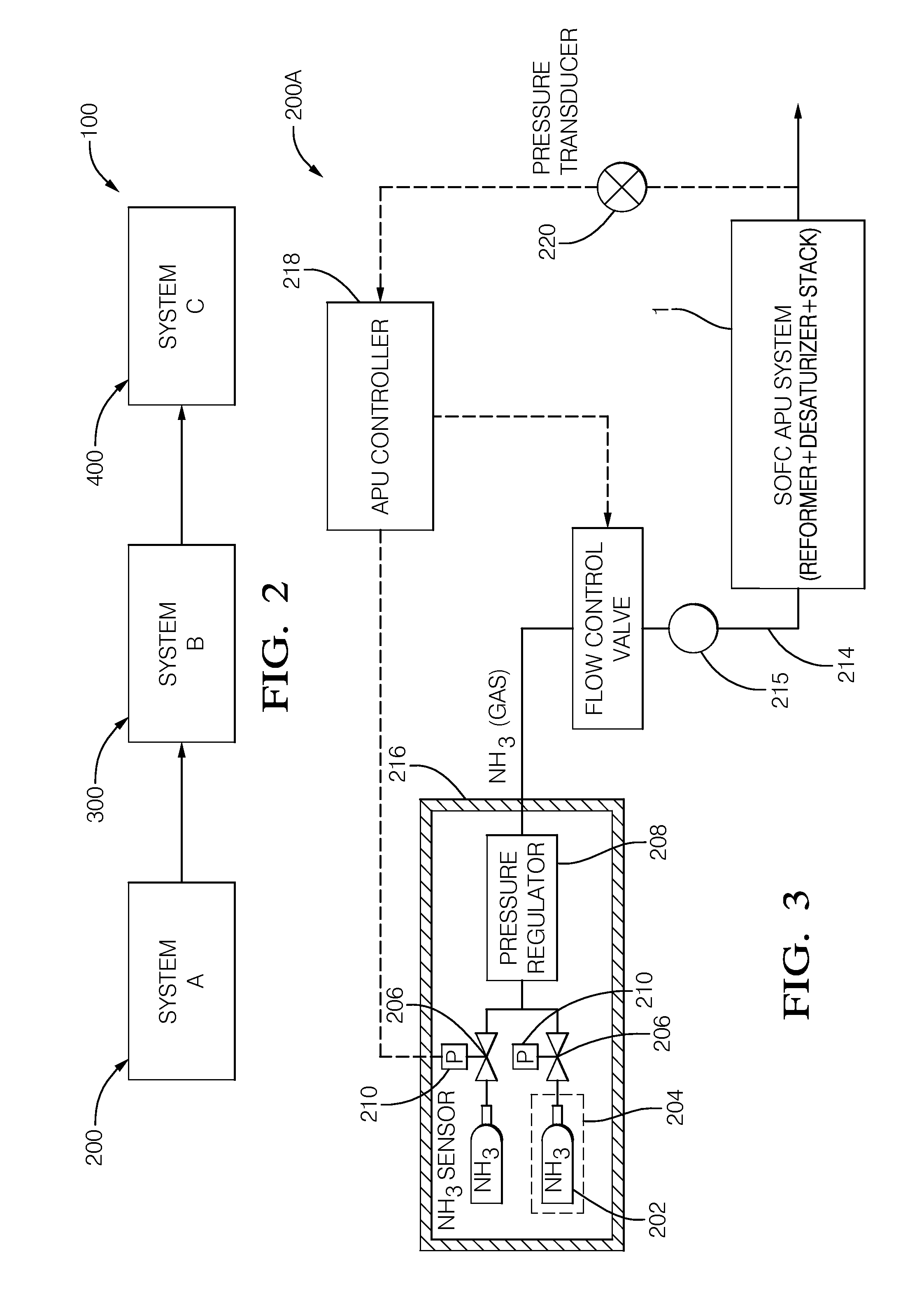Anode protection system for shutdown of solid oxide fuel cell system
a fuel cell and anode protection technology, applied in the field of solid oxide fuel cell system protection system, can solve the problems of ni re-oxidation, affecting the operation of fuel cells, and volumetric expansion of the anode layer, and achieve the effect of protecting the integrity of the sofc, preventing ni re-oxidation, and being sufficiently portable to be used
- Summary
- Abstract
- Description
- Claims
- Application Information
AI Technical Summary
Benefits of technology
Problems solved by technology
Method used
Image
Examples
Embodiment Construction
[0022]Shown in FIG. 1 is a typical solid oxide fuel cell (SOFC) system 1 known in the art. The SOFC system 1 includes a reformer 10, an optional desulfurizer 12, and a SOFC stack 14. The SOFC stack 14 includes a plurality of SOFC 15, wherein each SOFC 15 includes an anode layer 16, a cathode layer 20, and an electrolyte layer 18 sandwiched between the anode layer and cathode layer. The reformer 10 is typically of that of a catalytic hydrocarbon reformer that receives a hydrocarbon fuel stream 5 and produces fuel gas that includes hydrogen. The hydrocarbon fuel stream 5 may be that of gasoline, diesel, natural gas, jet fuel, kerosene, alcohol, ether, ammonia, or the likes. The three types of reformer technologies that are typically employed in conjunction with the SOFC system 1 are endothermic reformers using water or high recycle as inputs, autothermal reformers using partial air and partial recycle as inputs, and partial oxidation reformers using air an input. The reformer 10 takes...
PUM
| Property | Measurement | Unit |
|---|---|---|
| temperature | aaaaa | aaaaa |
| internal pressure | aaaaa | aaaaa |
| electrical potential | aaaaa | aaaaa |
Abstract
Description
Claims
Application Information
 Login to View More
Login to View More - R&D
- Intellectual Property
- Life Sciences
- Materials
- Tech Scout
- Unparalleled Data Quality
- Higher Quality Content
- 60% Fewer Hallucinations
Browse by: Latest US Patents, China's latest patents, Technical Efficacy Thesaurus, Application Domain, Technology Topic, Popular Technical Reports.
© 2025 PatSnap. All rights reserved.Legal|Privacy policy|Modern Slavery Act Transparency Statement|Sitemap|About US| Contact US: help@patsnap.com



